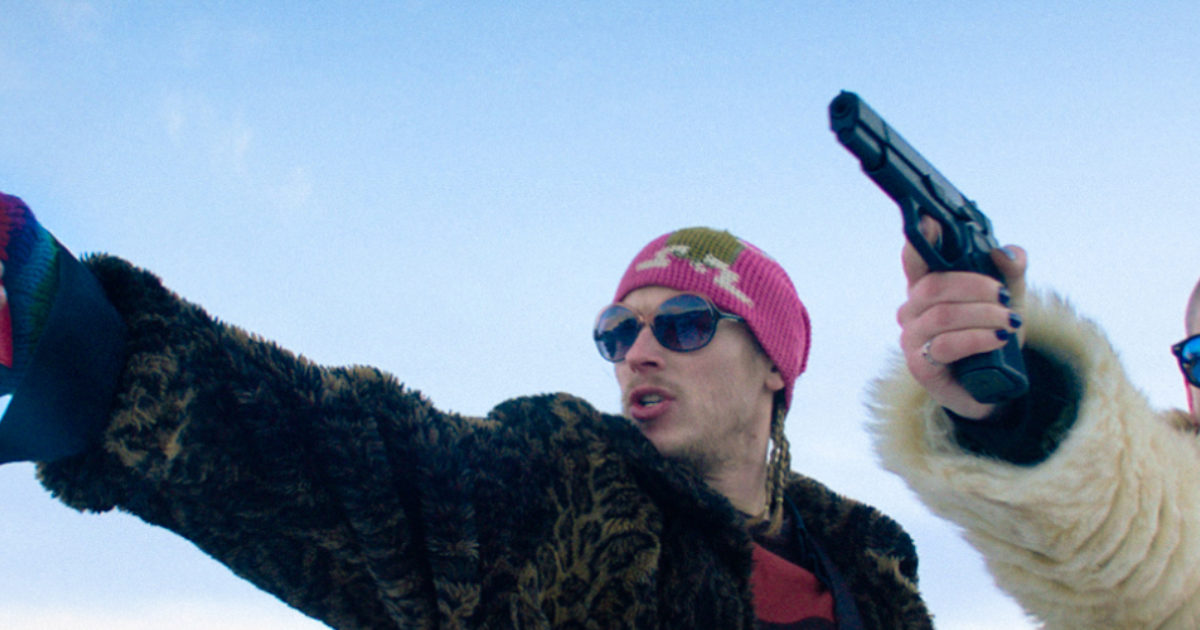Small-time drug dealer Óliver (Hansel Eagle) finds his gently inebriated world thrown into disarray after he’s forced to escape from a police raid on his home wearing only a towel. Stumbling into a random flat, he finds Óla (Telma Huld Jóhannesdóttir) strung out and half submerged in a bathtub. Pulling her from her foamy grave, he somehow manages to resuscitate her and together, the pair escape out of the apartment (whose owner is lying dead from an overdose in the next room) and into the Reykjavík night.
That improbable and breathless beginning sets the tone for what will comprise something reminiscent of Iceland’s answer to Trainspotting, as Óliver and Óla become sucked further and further into the drug-addled underbelly of the Icelandic capital. Hatching a plan to start a new life for themselves, they decide that pilfering fortunes from the local narcotics kingpin is their best route to success and rope in two friends to help. Predictably, the plan doesn’t turn out as rose-tinted as the pair would have hoped.
But while the thematic content bears a slight resemblance to that Scottish classic and the breakneck pace of the narrative attempts to surpass it, Eden only really succeeds in over-reaching itself. Several montages, which are set to jarring Icelandic rave and rap and which show the impulsive couple taking drugs, selling drugs and squandering the money they earned from drugs, are particularly ill-advised. While Trainspotting may have been accused of glorifying drug use, it contained plenty of grit, squalor and heartbreak to offset that euphoria. Eden does try to do the same, though not nearly as effectively as it might have.
Not to say that it’s not worth a watch. The cinematography by Logi Ingimarsson is particularly arresting at times, especially when the beautiful backdrops of the Icelandic countryside are contrasted against the claustrophobic interiors of drug dens (and the equally claustrophobic minds of those who inhabit them). Eagle and Jóhannesdóttir both give impassioned performances as the reckless lovers, while Gunnar Marís and Einar Viðar G. Thoroddsen provided much-needed light relief as the hapless pals they cajole into participating in their hare-brained scheme.
But unfortunately, the lack of charisma that the two central characters hold and the two-dimensional picture of Reykjavík (where everyone seems to be a pusher or an addict) that the film paints ultimately make it a fast-paced but entirely forgettable journey through the delusions of two tearaways. Any additional significance which Sölvason attempts to attribute to their story (presumably of innocents unaware of the ramifications of their actions) doesn’t really hold much water, and the final impression is one of a not unpleasant but not important trip into the murky underworld of drug abuse.
